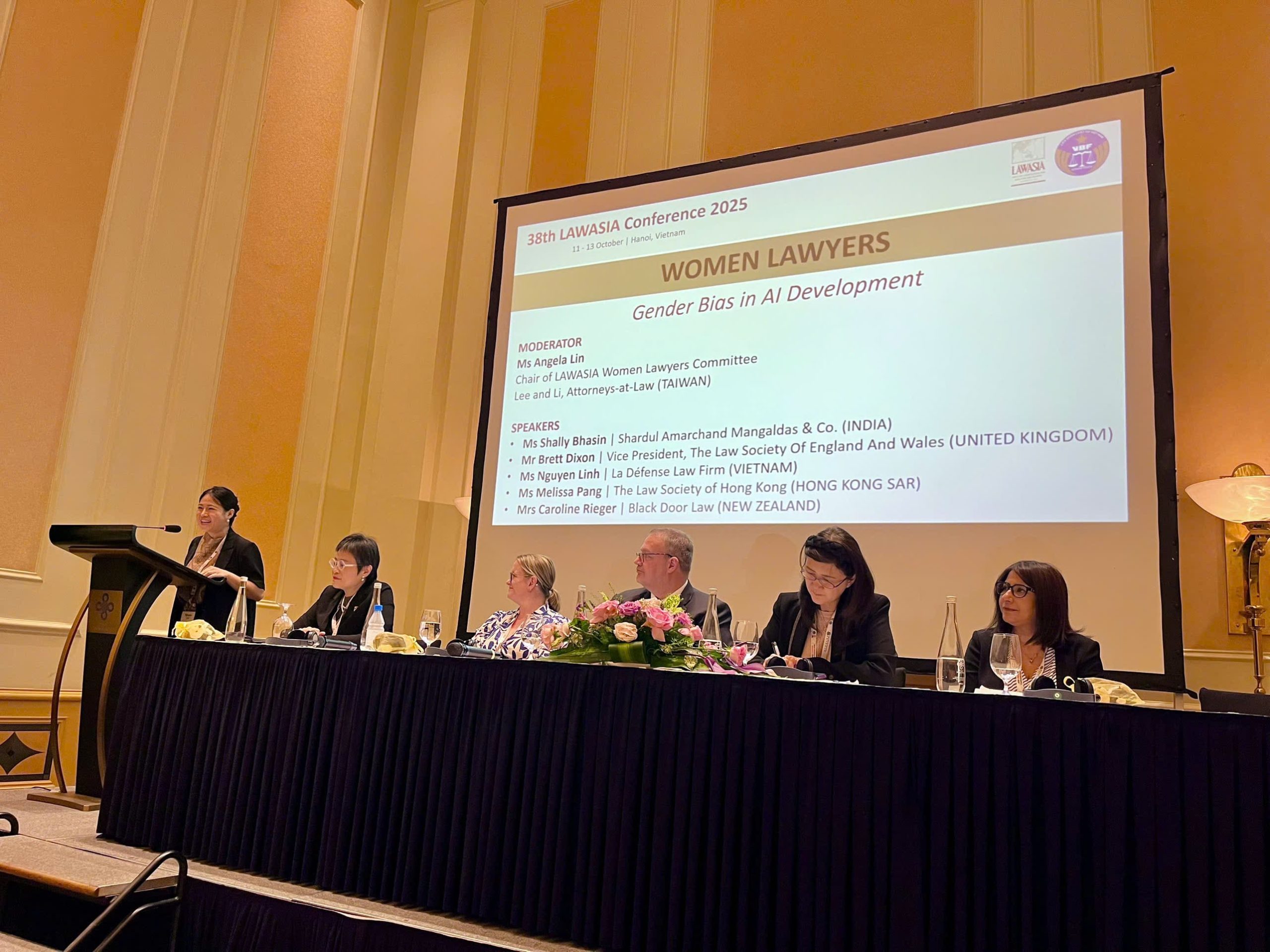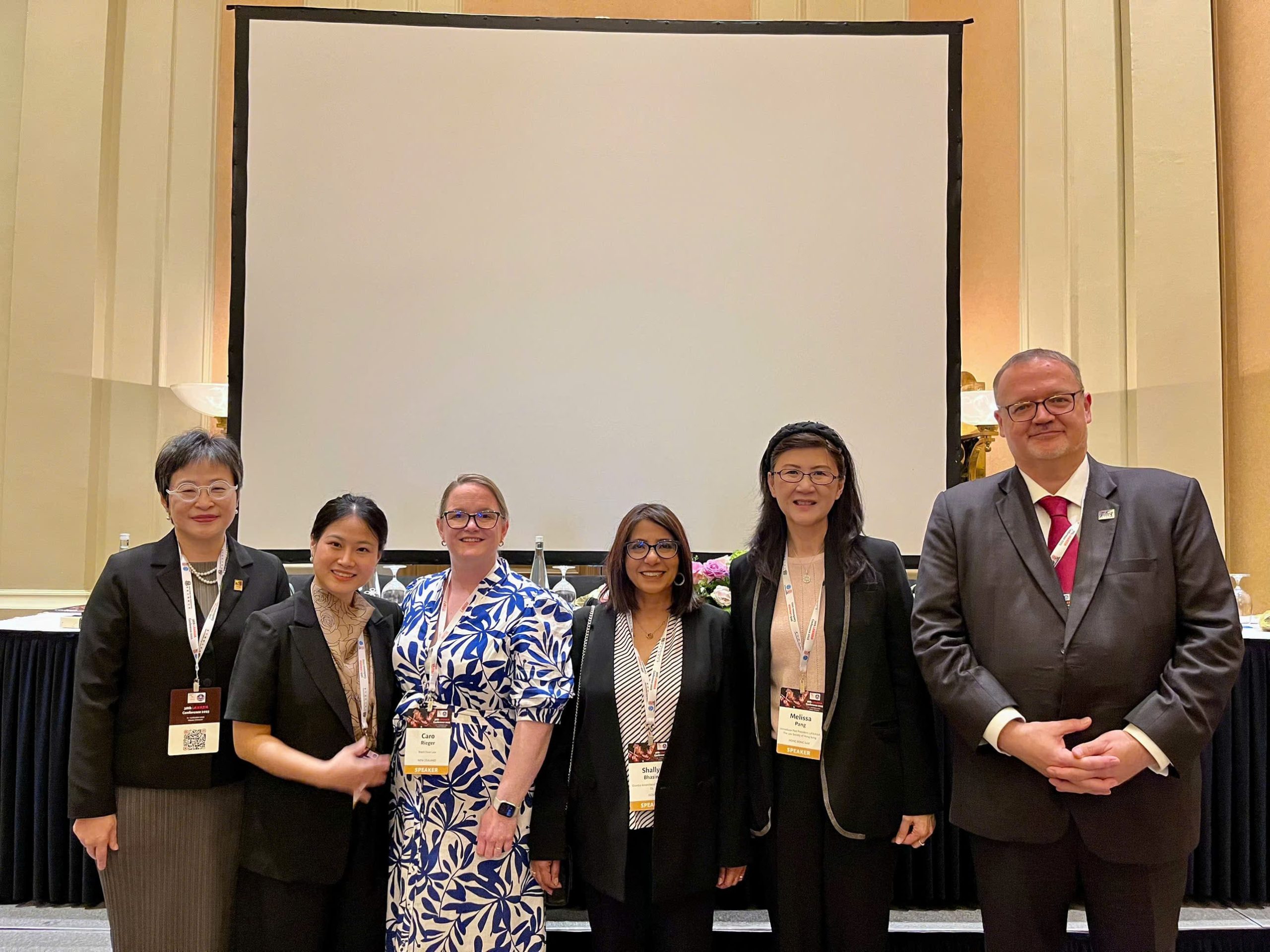By Lawyer Linh Nguyen – La Défense Law Firm
When Technology Outpaces Ethics
Artificial Intelligence is no longer a mere tool — it has become a mirror reflecting the limits of human society. When algorithms are trained on biased data, inequality doesn’t disappear; it evolves, becoming more subtle and harder to detect.
As Lawyer Linh Nguyen noted at the 38th LAWASIA Annual Conference, during the Women Lawyers – Gender Bias in AI session:
“When technology advances faster than ethics, inequality quietly takes new shapes. Gender bias in AI is one of them — subtle, systemic, yet deeply human.”
The issue is not about machines — it’s about the values we embed within them.

When Data Bias Becomes Real-World Injustice
The evidence is already clear. Recruitment software that filters out female applicants. Credit scoring models that underrate women-led enterprises. Medical algorithms that diagnose female patients less accurately than male ones.
In Vietnam, early signs are emerging. Domestic banks are increasingly using automated credit scoring systems based on behavioral and online transaction data. Yet women-owned SMEs — accounting for over 30% of all small and medium enterprises — often receive lower scores, not due to weak repayment records but because their digital footprints are smaller. The bias lies not in performance, but in visibility.
Similarly, a 2023 review by the Ministry of Labour, Invalids and Social Affairs found that female jobseekers without profile photos were 1.3 times less likely to receive interview invitations on major recruitment platforms. Algorithms optimized for “engagement” ended up reinforcing stereotypes about appearance — proof that bias often hides behind efficiency.
The Legal Challenge of the “Black Box” Era
AI is being developed in an environment where transparency remains optional, and accountability is undefined. Documentation is incomplete, fairness testing is rare, and very few systems are independently audited for gendered or demographic bias.
Vietnam’s current legal framework remains fragmented. The Law on Cybersecurity (2018) and Decree No. 13/2023/ND-CP on Personal Data Protection provide basic safeguards against data misuse but do not address algorithmic discrimination. The National Strategy on Artificial Intelligence to 2030 sets a goal for “ethical and human-centered AI,” yet the roadmap for implementation is still unfolding.
This gives Vietnam a unique opportunity — to embed equality principles before bias becomes systemic in domestic AI development.
“Law must not only react to injustice; it must anticipate it.”
— Lawyer Linh Nguyen

Three Directions Toward a Fairer Future
1. Measure and Detect.
We cannot fix what we cannot measure. Fairness testing should be a mandatory step in AI development, evaluating how systems perform across gender, age, and region.
2. Mitigate and Correct.
Bias is not destiny. With better data, careful labelling, and fairness-aware algorithms, discrimination can be significantly reduced. In high-risk sectors like finance, education, and healthcare, such safeguards must be mandatory, not optional.
3. Monitor and Govern.
Accountability doesn’t end when a model goes live. Contracts with AI vendors must include disclosure, explanation, and correction clauses. Individuals affected by AI-driven decisions should have the right to challenge them promptly.
Encouragingly, Vietnam is taking early steps. The Ministry of Science and Technology is developing a national AI governance framework that incorporates fairness and gender inclusion. Universities, in collaboration with UNDP, have introduced “Ethical AI” courses to help developers identify and mitigate dataset bias from the design phase.
AI as a Mirror of Human Values
Gender bias in AI is not inevitable — it is a design choice. Every dataset and algorithm reflects our intentions or our blind spots.
The question is no longer how AI will shape our future, but rather:
Whose values will it carry forward?
If built with integrity, humility, and accountability, AI can evolve to reflect the best of human values — not our worst biases.
“History will not judge us by how advanced our technology became, but by how wisely and how fairly we used it.”
— Lawyer Linh Nguyen

